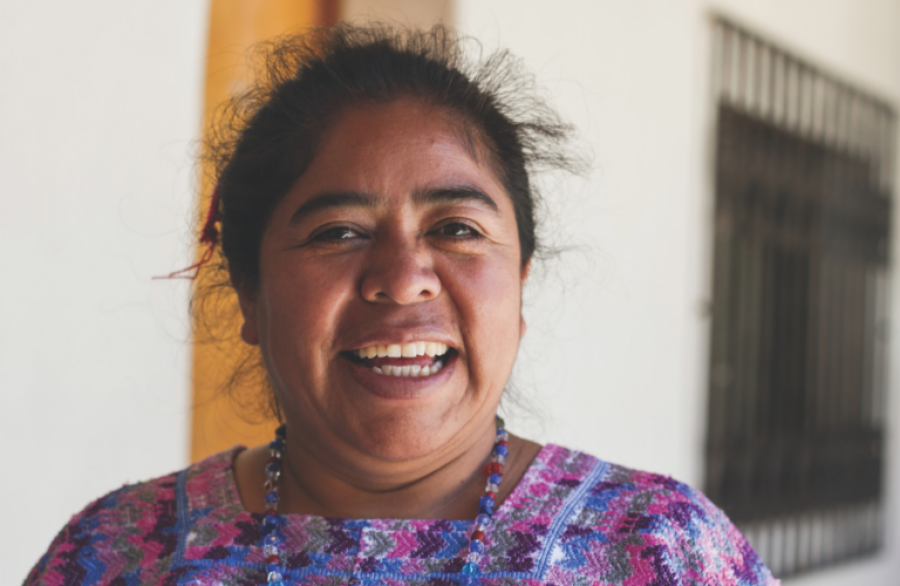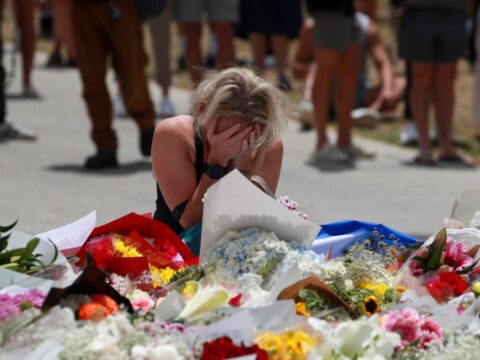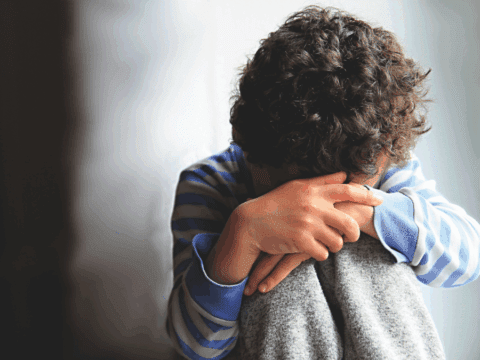Q: The Marlin mine, owned by Vancouver-based Goldcorp Inc., operated for 12 years amid accusations of human rights violations and environmental damage, before closing down in 2017. What was life like among the Mam people in San Miguel Ixtahuácan before the mine opened?
A: I’m not going to tell you it was heaven on earth here before the mine came, but there was a feeling of mutual aid, of shared cultural values. The type and scale of conflicts are so much different now.
You may unsubscribe from any of our newsletters at any time.
Q: What are the greatest concerns with the mine closing?
A: One of the key things is housing. The housing here is cracked or damaged [because of blasting at the mine], but people don’t have anywhere else to live. So that needs to be repaired. There are problems with water sources drying up or being contaminated by heavy metals. And the social conflict, the cultural and spiritual impacts, those need to be repaired, too.
Q: Were there any particular effects on women and children?
A: One of the more troubling effects we have seen in women is an increase in the number of HIV infections. When the mine came to town, the number of bars and cantinas just exploded. And to sell more drinks, the cantinas and bars brought in more sex-trade workers. Sexually transmitted diseases have increased, not just among mine workers but among the general population. That’s been affecting wives, who are then infecting babies. Wives are also reporting that husbands are spending money on booze, so there’s no money for food or school supplies. It’s kind of a chain reaction in the community. The other side is that the resistance to this has been led by women who have had the strength to stand up to the company and denounce what’s been happening. But they are also the ones who are being criminalized and persecuted by the state [facing criminal charges for peaceful protests].
Q: Have you personally felt threatened because of your opposition to the mine?
A: I have received threats and insults. No physical attacks, but workers have confronted me and said, “You are turning our wives against us, you are making our lives difficult.”
Q: The pension board of The United Church of Canada has refused to divest from Goldcorp despite a vote by the General Council in 2015 to withdraw funds. What do you make of this reluctance?
A: We have a situation in which the company hides behind the word “development.” It’s a mask to obscure what they are doing. They are not here to look after us or the well-being of the country. They are here to make money. The public needs to understand that Goldcorp isn’t a viable form of economic activity. It brings death, not development. If Goldcorp came to any community here in Canada and said, “Hey, we’ve got this mine, and you’re going to suffer contaminated water, damaged houses, a destroyed social fabric, a lot of alcoholism and malnutrition, and maybe a little more social disruption and higher HIV rates, are you good with that? Because we want to make a lot of money, and in the future you’ll be even poorer than you are now. You’re good with that, right?” You would never agree to that. But the company says, “We’ve got this great project, and in the future you’ll be really rich. Canada’s rich.” A lot of people were fooled by that.
Q: Now that the mine is closed, do more locals believe that it was bad for the community?
A: Out of a population of about 40,000, the mine at any one point had about 700 employees from the community. They have now all lost their jobs. And they too have broken or cracked houses. They have contaminated water, and they themselves are experiencing illnesses, just like the rest of us. In the past, they fought against us because they said we were trying to take away their jobs, but now they are coming to the San Miguel defence fund and asking us to help them. They are realizing we’re all in the same boat. To find work, some are going to farms on the south coast or attempting a risky migration to the United States.
Q: Do you believe the company’s promises to clean up the mine?
A: We have a saying that they are throwing honey on your beard. And it means that they are trying to tell us everything is okay. But we can look at the company’s sustainability report on the mine closure. The report says that everything is going fine with the closure, but that is not in any way a reflection of reality. So how can I believe the company? It just lies.
Q: What does the community need in order to heal?
A: The community needs to find its own ways forward. One example is in the parish, where we have a mental health project, or what we call personal growth workshops. The purpose of the workshops is to decolonize our minds and ways of thinking, to overturn in ourselves the version of the official story that our distant ancestors fled the Spanish invaders and let colonization happen. We share the real story of how our ancestors tried to resist, and that helps us feel proud of our Indigenous heritage and secure in who we are.
Q: Does the Mam community have support elsewhere in Guatemala for its efforts to raise awareness about the negative impact of the mine?
A: No. When the mine started up, a lot of national organizations were worried and got funding to support the community. But when the people in the area didn’t take the positions they wanted them to take, they considered us a lost cause. Now with the mine’s closure, it feels like some of the groups are starting to turn their attention back to what is happening here.
Q: What can people in Canada and the United Church do to help?
A: First, I would ask Canadians to insist that their pension funds do not invest in Goldcorp. I don’t understand why you would put so much money into Goldcorp and then spend so much money cleaning up the damage it caused. It doesn’t make sense to me. Another concrete way that people can help is by providing support for workshops to heal people’s hearts. Mines are areas of violence and conflict, and there is a lot of deep trauma in the community. In the last five years, we have had suicides of eight young people, which is particularly worrying. We need to calm the conflict, but people can only reach a state of equilibrium and peace if they have dealt with their trauma and healed their own health. We don’t think the company will ever be able to repair all the damage it has done here. But we want to expose what has happened, so that we can prevent it from happening elsewhere.
This interview has been edited and condensed. It first appeared in The United Church Observer’s January 2019 issue with the title “Mining isn’t a viable form of economic activity. It brings death, not development.”











